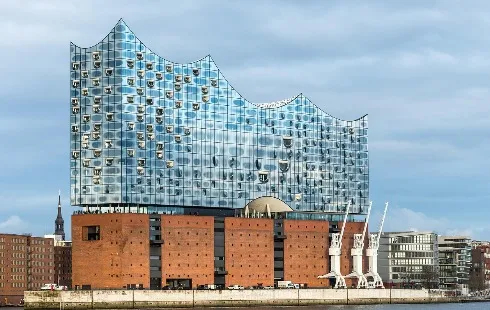
Trump's Tariff War: China Urges Immediate Repeal of Tariffs Amid Countermeasures
Section: News
Recent events have unfolded in Switzerland where Zwelivelile "Mandla" Mandela, a South African politician and grandson of the late Nelson Mandela, has made appearances at universities in Geneva and Lausanne. His visits have sparked considerable attention due to his connections with pro-Palestinian movements and alleged ties to Russian interests.
Mandla Mandela has gained notoriety for his outspoken support of Hamas and other groups opposing Israel. His recent engagements included speaking at an international conference in Yemen, organized by the Houthi militia, where he vocally expressed solidarity with Hamas and Hezbollah, urging attendees to champion the Palestinian cause. This public endorsement has raised eyebrows and discussions about the implications of his advocacy.
In May 2024, Mandela was invited by the Palestine Association at the University of Lausanne to speak at an event that was originally intended to be hosted on campus but was moved to a private venue due to timing issues. Following this, he also addressed students at the University of Geneva, where his presence was met with mixed reactions, particularly given Switzerland's recent decision to classify Hamas as a prohibited organization.
Despite prior warnings about Mandela's affiliations and the nature of his rhetoric, the Geneva university allowed his talk to proceed, with a university representative in attendance to monitor the event. Reports indicate that the university received prior notice regarding Mandela's past associations, including images of him with known Hamas leaders, yet still chose to permit the event.
Mandela's activities are not solely limited to his university visits. He has been linked to the European Muslim Forum (EMF), an organization that reportedly fosters relationships between Muslim communities and has connections to Russian political figures. The EMF, which was established in 2018, has seen diminished activity, with its London branch closed and its online presence largely inactive, although it remains operational in other cities like Barcelona and Istanbul.
Analysts have noted that the EMF appears to be aligned with Russian geopolitical strategies, particularly in promoting narratives that resonate with anti-West sentiments. The organization's president, Abdul-Vakhed Niyazov, has longstanding ties to the Kremlin and has been involved in efforts to position Russia as a protector of Islamic interests.
Recent investigations have suggested that Russia may be actively influencing anti-Israel sentiments within Europe, with allegations that Russian intelligence services are orchestrating efforts to incite protests against Israel. This situation is compounded by claims that foreign entities are utilizing Swiss soil to promote their agendas, raising concerns about the nation's sovereignty and the integrity of its educational institutions.
In light of these developments, the Swiss Federal Council's measures against Hamas and similar organizations are under scrutiny. Questions are being raised regarding the effectiveness of these measures, particularly in the context of foreign influence in domestic affairs. The ongoing discourse highlights the complexities surrounding freedom of expression, political activism, and the role of international connections in shaping public opinion.
Mandela's ongoing travels and engagements as a spokesperson for Hamas reflect a larger narrative concerning the intersection of politics, activism, and international relations. As the situation evolves, it remains to be seen how Swiss authorities will address the implications of these activities within their borders.

Section: News

Section: News

Section: Politics

Section: News

Section: News

Section: Politics

Section: Arts

Section: News

Section: News

Section: Business

Health Insurance in Germany is compulsory and sometimes complicated, not to mention expensive. As an expat, you are required to navigate this landscape within weeks of arriving, so check our FAQ on PKV. For our guide on resources and access to agents who can give you a competitive quote, try our PKV Cost comparison tool.

Germany is famous for its medical expertise and extensive number of hospitals and clinics. See this comprehensive directory of hospitals and clinics across the country, complete with links to their websites, addresses, contact info, and specializations/services.

Join us for the presentation of Dr. Felix Leibrock's latest book, Göttliches fühlen, where he explores the emotional experience as a pathway to happiness. This thought-provoking work addresses the challenge of believing in a higher power amidst overwhelming suffering. Can the divine be felt...
No comments yet. Be the first to comment!